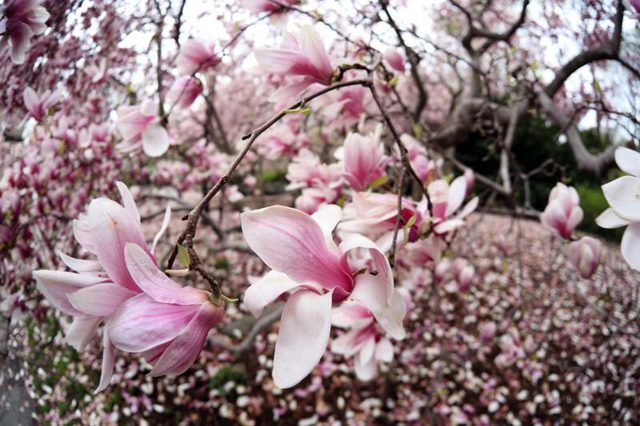Bulbs
Flower Basics
Flower Beds & Specialty Gardens
Flower Garden
Garden Furniture
Garden Gnomes
Garden Seeds
Garden Sheds
Garden Statues
Garden Tools & Supplies
Gardening Basics
Green & Organic
Groundcovers & Vines
Growing Annuals
Growing Basil
Growing Beans
Growing Berries
Growing Blueberries
Growing Cactus
Growing Corn
Growing Cotton
Growing Edibles
Growing Flowers
Growing Garlic
Growing Grapes
Growing Grass
Growing Herbs
Growing Jasmine
Growing Mint
Growing Mushrooms
Orchids
Growing Peanuts
Growing Perennials
Growing Plants
Growing Rosemary
Growing Roses
Growing Strawberries
Growing Sunflowers
Growing Thyme
Growing Tomatoes
Growing Tulips
Growing Vegetables
Herb Basics
Herb Garden
Indoor Growing
Landscaping Basics
Landscaping Patios
Landscaping Plants
Landscaping Shrubs
Landscaping Trees
Landscaping Walks & Pathways
Lawn Basics
Lawn Maintenance
Lawn Mowers
Lawn Ornaments
Lawn Planting
Lawn Tools
Outdoor Growing
Overall Landscape Planning
Pests, Weeds & Problems
Plant Basics
Rock Garden
Rose Garden
Shrubs
Soil
Specialty Gardens
Trees
Vegetable Garden
Yard Maintenance
How to Care for a Japanese Magnolia
How to Care for a Japanese Magnolia. Talk about a cosmopolitan background: The Japanese magnolia (Magnolia x soulangeana) is the offspring of two Chinese parents, but the cross that created it occurred at The French Royal Institute in the early 19th century. Since then, it has become one of the most widely planted magnolias in U.S. Department of...

Talk about a cosmopolitan background: The Japanese magnolia (Magnolia x soulangeana) is the offspring of two Chinese parents, but the cross that created it occurred at The French Royal Institute in the early 19th century. Since then, it has become one of the most widely planted magnolias in U.S. Department of Agriculture plant hardiness zones 4 though 9. Between late winter and early spring, depending on location, the shrub or small tree explodes with enormous, fragrant pink, white or purple goblet-shaped blooms. Also known as saucer magnolia, it survives up to 150 years with proper care.
When to Fertilize
Japanese magnolia benefits from feeding with granulated, slow-release 4-3-4 fertilizer formulated for acid-loving plants. A tree with a trunk diameter of less than 3 inches -- measured 4 feet above the soil -- gets 1 pound, or the label's specified amount, per inch in early spring. Triple the dose for larger trees. For a shrub, use 1 cup of fertilizer for every 1 foot of branch spread, doubling the amount for spreads of more than 3 feet. In late fall, repeat the applications at one-half strength. Keep the granules away from the trunk, scatter them evenly about a foot past the drip line and water them in. Always follow your fertilizer brand's directions regarding how often to fertilize your magnolia; different strengths require different amounts and frequencies of application.
When to Water and Mulch
Both recently planted and established Japanese magnolias need consistently moist -- not waterlogged -- soil. One inch of rain or supplemental water per week during the growing season, or 10 gallons for every 10 square feet of soil, keeps them healthy. A single, slow-but-long weekly watering is better than several light sprinklings. If your magnolia is less than five years old, surround it with a 2-inch layer of organic mulch, spreading it at least 2 feet beyond the base and widening it as the magnolia grows; do not allow the mulch to touch the trunk. Replace the mulch as it decomposes. If your soil freezes, protect the shallow roots from frost heaves by increasing the mulch to 4 inches before the first frost. Mulch is optional for older trees, but it does preserve soil moisture and add soil nutrients as it decays.
When to Prune
Japanese magnolias heal slowly from pruning cuts. To protect yours from wound-infesting diseases and pests, prune only to shape it and remove dead or crossing branches, or to encourage a tree form by removing its lower branches. In late winter or spring before the flowers emerge, cut the branches and twigs off at their bases with clean, sharp tools. Between cuts, rinse the tools in a solution of 1 part household bleach to 9 parts water so you don't accidentally spread disease.
When Pests Appear
Japanese magnolias have excellent disease and insect resistance. A rare pest is the white, waxy sap-draining magnolia scale that covers the plant in gooey, transparent waste called honeydew. Magnolia scale nymphs overwinter on young twigs. To suffocate them before they mature and mate, spray your magnolia with ready-to-use horticultural oil. Treat it in early spring after danger of freezing nights has passed but before the buds open, as suggested by Penn State College of Agricultural Sciences. On a calm, cloudy morning with the temperature between 40 and 90 degrees Fahrenheit, and no rain in the forecast, spray the twigs until they drip. Dress in protective clothing, closed-toe shoes, safety goggles and waterproof gloves while spraying, and follow the label's directions when handling the oil.